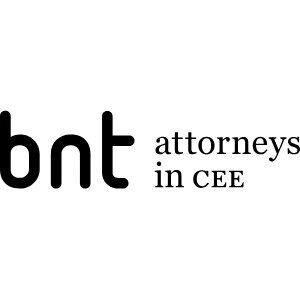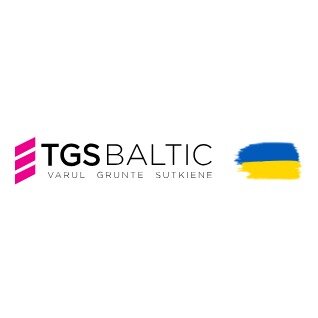Best Project Finance Lawyers in Estonia
Share your needs with us, get contacted by law firms.
Free. Takes 2 min.
Or refine your search by selecting a city:
List of the best lawyers in Estonia
About Project Finance Law in Estonia
Project finance is a specialized way of funding large-scale infrastructure and industrial projects through a combination of debt and equity. In Estonia, project finance is used to develop energy plants, transportation systems, public infrastructure, and real estate projects. Instead of relying solely on the balance sheet of the project sponsors, the structure allows for the repayment of loans from the cash flow generated by the project itself. Estonia's business-friendly environment, transparent legal system, and alignment with European Union directives make it an attractive location for both domestic and international project finance transactions.
Why You May Need a Lawyer
Many individuals, developers, and businesses seek legal advice when engaging in project finance transactions due to the complexity and high value of these projects. You may need a project finance lawyer in numerous situations, such as:
- Structuring project finance deals and determining the most efficient legal framework.
- Negotiating and drafting finance, construction, and operating agreements.
- Ensuring compliance with Estonian and EU laws and regulations.
- Minimizing risks through due diligence and risk assessment.
- Securing collateral and perfecting security interests.
- Advising on public-private partnership (PPP) models and government incentives.
- Resolving disputes between project stakeholders.
- Guiding through cross-border aspects where foreign investors or financing is involved.
Due to the financial and legal stakes involved, skilled legal guidance is highly recommended in project finance matters.
Local Laws Overview
Estonian laws governing project finance are shaped by domestic legislation and compliance with EU directives. Key legal areas relevant to project finance in Estonia include:
- Contract Law: Project finance structures rely heavily on well-drafted contracts including loan agreements, security documents, and commercial contracts.
- Property and Security Interests: The law allows for various forms of collateral, including mortgages, pledges of shares, and assignment of receivables. Registration and perfection requirements are strictly enforced.
- Company Law: The Estonian Commercial Code regulates the establishment and structuring of project companies, often established as special purpose vehicles (SPVs).
- Public-Private Partnerships: PPPs are regulated under specific procurement and concession laws to ensure transparency and competitive selection.
- Environmental and Planning Laws: Large projects must comply with environmental impact assessments, building permits, and zoning laws in Estonia.
- Banking and Finance Regulation: The Financial Supervision Authority (Finantsinspektsioon) supervises entities involved in financial services.
- Tax Law: Estonia offers a competitive corporate tax system, and tax structuring is commonly part of project finance planning.
Frequently Asked Questions
What types of projects are typically financed using project finance structures in Estonia?
Project finance is commonly used for energy projects like wind farms, power plants, infrastructure such as roads and bridges, real estate developments, and large industrial facilities.
Can foreign investors participate in project finance deals in Estonia?
Yes, Estonia encourages foreign investment. There are no major restrictions on foreign ownership, and cross-border financing is common.
What is a special purpose vehicle (SPV) in the context of Estonian project finance?
An SPV is a legal entity created solely to develop and operate the project. It isolates project risks and separates the project from the sponsors' other assets and liabilities.
How are loans secured in Estonian project finance deals?
Loans are typically secured through mortgages over real estate, pledges of shares, assignment of rights under contracts, and occasionally other forms of collateral recognized under Estonian law.
What legal due diligence is required in a project finance transaction?
Due diligence usually covers land and property rights, contractual arrangements, environmental and permitting compliance, corporate structure, tax, and regulatory matters.
Are there specific laws for public-private partnerships in Estonia?
PPPs are governed by the Public Procurement Act and the Concessions Act, which set out the rules for awarding contracts and managing partnerships involving public authorities and private companies.
What role do environmental regulations play in project finance?
Compliance with environmental laws is crucial. Projects must obtain all necessary permits and conduct environmental impact assessments as required by Estonian and EU law.
Is it necessary to register security interests in Estonia?
Yes, many types of security interests, such as mortgages and commercial pledges, must be registered with the relevant Estonian registries for enforceability.
What is the typical tax treatment of project companies in Estonia?
Project companies are usually taxed under the Estonian corporate income tax system, which defers taxation until profits are distributed, making it attractive for reinvestment during the project's lifetime.
How can disputes in project finance deals be resolved?
Disputes may be settled through negotiation, mediation, arbitration, or Estonian courts, depending on the terms of the agreements involved and the preferences of the parties.
Additional Resources
If you are considering project finance in Estonia, the following resources and organizations can provide valuable information and assistance:
- Estonian Financial Supervision Authority (Finantsinspektsioon) - oversight of financial markets and institutions
- Estonian Ministry of Economic Affairs and Communications - information on infrastructure and development projects
- Estonian Chamber of Commerce and Industry - resources and contacts for businesses and investors
- Notaries and Land Register - for registering property and security interests
- Local law firms with expertise in finance, real estate, and infrastructure
Next Steps
If you require legal assistance with a project finance matter in Estonia, consider the following steps:
- Clearly define your project objectives and gather all relevant project documents.
- Consult with a lawyer who has experience in project finance and an understanding of the relevant industry sector.
- Request an initial assessment and discuss potential risks, structures, and legal requirements.
- Engage your chosen legal advisor to conduct due diligence, draft or review contracts, and manage regulatory compliance.
- Maintain open communication with all stakeholders, including banks, contractors, and public authorities, throughout the process.
- Stay informed about changes in legislation or market conditions that could affect your project.
Working with a skilled legal professional at every stage can help safeguard your interests and enhance the success of your project finance venture in Estonia.
Lawzana helps you find the best lawyers and law firms in Estonia through a curated and pre-screened list of qualified legal professionals. Our platform offers rankings and detailed profiles of attorneys and law firms, allowing you to compare based on practice areas, including Project Finance, experience, and client feedback.
Each profile includes a description of the firm's areas of practice, client reviews, team members and partners, year of establishment, spoken languages, office locations, contact information, social media presence, and any published articles or resources. Most firms on our platform speak English and are experienced in both local and international legal matters.
Get a quote from top-rated law firms in Estonia — quickly, securely, and without unnecessary hassle.
Disclaimer:
The information provided on this page is for general informational purposes only and does not constitute legal advice. While we strive to ensure the accuracy and relevance of the content, legal information may change over time, and interpretations of the law can vary. You should always consult with a qualified legal professional for advice specific to your situation.
We disclaim all liability for actions taken or not taken based on the content of this page. If you believe any information is incorrect or outdated, please contact us, and we will review and update it where appropriate.
Browse project finance law firms by city in Estonia
Refine your search by selecting a city.














